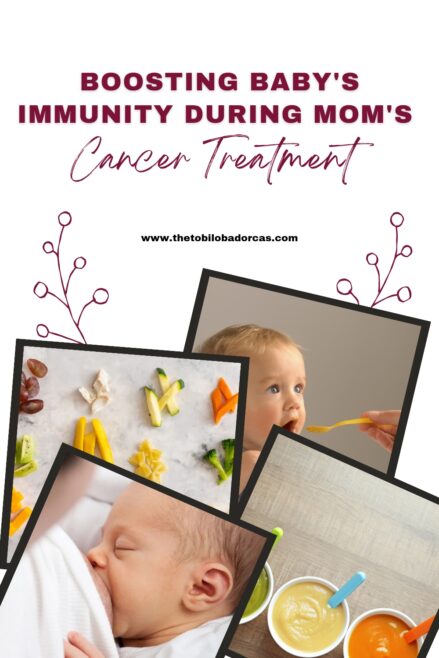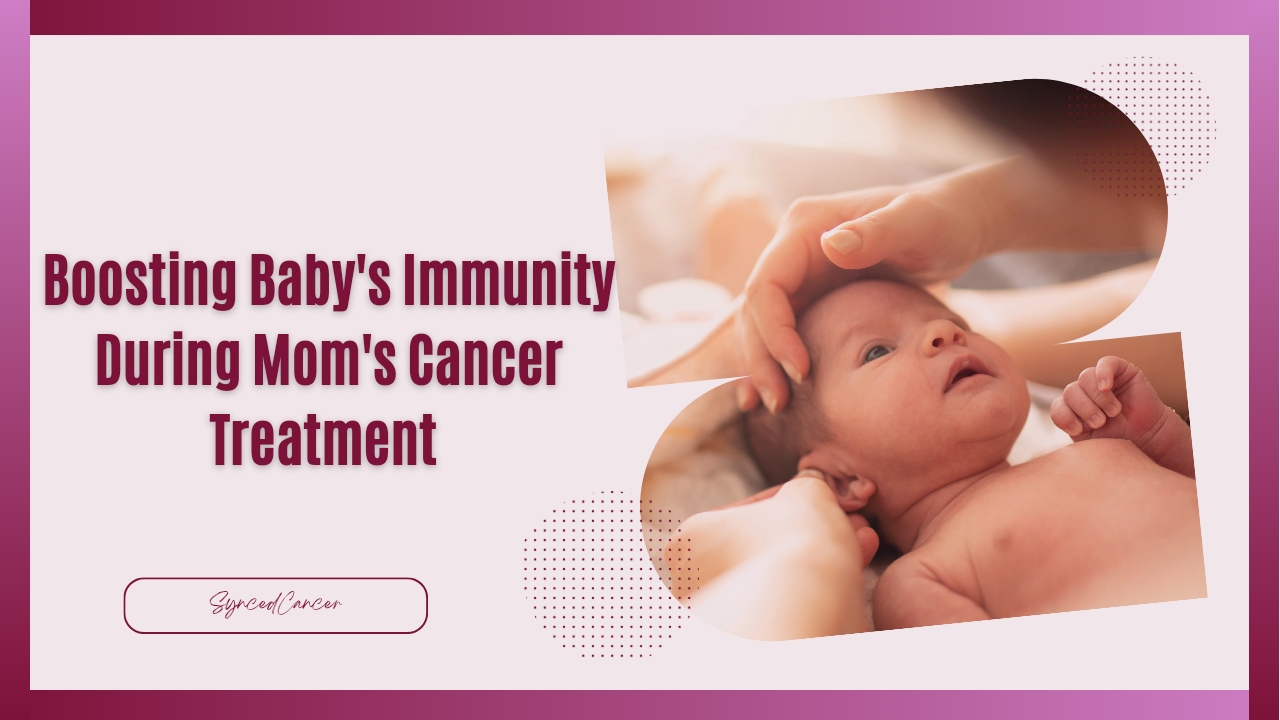Boosting baby's immunity during mom's cancer treatment
Breastfeeding is widely recognized as the gold standard for infant nutrition, primarily because of the unique blend of antibodies and nutrients present in breast milk. This becomes particularly critical when a mother is undergoing cancer treatment, which can compromise both her and her baby’s immunity systems. Cancer treatments such as chemotherapy, radiation, and immunotherapy are known to significantly weaken the immune system. For mothers undergoing such treatments, the ability to care for a baby, who already has an immature immune system, can be daunting. One of the primary concerns is ensuring the baby’s immunity is robust enough to safeguard against infections and illnesses. This blog post aims to provide a comprehensive guide to boosting baby’s immunity while their mother is receiving cancer treatment, addressing nutrition, lifestyle adjustments, medical care, and psychological support.
Understanding Breast Milk Composition
Breast milk is a complex and dynamic fluid, uniquely tailored to meet the nutritional and immunological needs of an infant. Its composition includes:
- Antibodies (Immunoglobulins)
- IgA: The most prevalent antibody in breast milk, it forms a protective layer in the baby’s mucous membranes, guarding against pathogens.
- IgG, IgM, IgD, and IgE: These antibodies provide additional immune protection by neutralizing toxins and viruses.
- Nutrients
- Proteins: Essential for growth and baby’s immunity function, including lactoferrin, which has antibacterial properties.
- Fats: Crucial for brain development and providing energy.
- Carbohydrates: Such as lactose, which aids in digestion and absorption of nutrients.
- Vitamins and Minerals: Vitamin A, C, D, and E, along with zinc and iron, are crucial for baby’s immunity function. These can be provided through a variety of fruits, vegetables, whole grains, and lean proteins.
- Bioactive Compounds
- Oligosaccharides: Prebiotics that promote the growth of beneficial gut bacteria.
- Cytokines and Growth Factors: Modulate immune responses and support the development of the baby’s immunity system.

Nutrition: The Foundation of Immunity
Breastfeeding
- Benefits: Breast milk is the best source of nutrition for a baby. It contains antibodies and immune-boosting properties that can help protect against infections.
- Considerations: If the mother is able to breastfeed, it is highly recommended. However, some cancer treatments may affect breast milk, so it’s essential to consult with a healthcare provider.
Formula Feeding
- If breastfeeding is not an option due to the mother’s treatment, choosing a high-quality infant formula is crucial. Some formulas are fortified with additional nutrients and probiotics that support immune health.
Introducing Solids
- Timing: Around six months, babies can start eating solid foods. Introducing nutrient-dense foods can help support baby’s immunity system.
- Foods to Include: Pureed fruits and vegetables, iron-fortified cereals, and foods rich in vitamins A, C, and E, which are known for boosting baby’s immunity.
Lifestyle Adjustments: Creating a Healthy Environment
- Hygiene
- Handwashing: Ensure that everyone who handles the baby washes their hands frequently. This is one of the most effective ways to prevent the spread of infections.
- Sanitizing Toys and Surfaces: Regular cleaning of toys and surfaces that the baby frequently touches can minimize exposure to pathogens.
- Avoiding Sick Contacts: Limiting the baby’s contact with sick individuals reduces the risk of infection.
- Limiting Exposure to Illness: Avoid crowded places and unnecessary social interactions, especially during cold and flu season. Encourage visitors who are sick to postpone their visits until they are healthy.
- Vaccinations: Keeping up with the baby’s vaccination schedule is critical. Vaccines protect against numerous serious diseases and are a key component of a strong immune system.
Medical Care: Regular Monitoring and Support
- Regular Check-ups: Schedule regular paediatric appointments to monitor the baby’s health and development. This allows early detection and management of any health issues.
- Consult with Specialists: Work closely with the mother’s oncologist and the baby’s paediatrician to ensure coordinated care. They can provide specific recommendations tailored to the baby’s needs during the mother’s treatment.
- Probiotics and Supplements: Discuss the possibility of adding probiotics or other immune-boosting supplements to the baby’s diet with a healthcare provider. Probiotics can promote gut health, which is closely linked to overall immune function.
Psychological Support: Mental and Emotional Well-being
- Emotional Bonding: Despite the physical and emotional toll of cancer treatment, maintaining a strong emotional bond with the baby is vital. Simple activities like reading, cuddling, and talking to the baby can provide emotional security.
- Support Networks: Enlist the help of family and friends to assist with childcare and household tasks. This support can help reduce stress for the mother, allowing her to focus more on quality time with the baby.
- Counselling and Support Groups: Consider joining support groups for mothers undergoing cancer treatment. Sharing experiences and advice with others in similar situations can provide emotional support and practical tips.
Conclusion
Boosting baby’s immunity during a mother’s cancer treatment involves a multifaceted approach. Breast milk is a powerful ally in enhancing an infant’s immune system, offering crucial protection through its unique composition of antibodies and nutrients. During a mother’s cancer treatment, breastfeeding can provide additional layers of immunological defense and nutritional stability to the baby. However, the decision to breastfeed during such a period must be carefully considered with medical guidance to ensure the safety and well-being of both mother and child. The ultimate goal is to leverage the benefits of breast milk to support the infant’s health during this challenging time, ensuring they receive the best possible start in life despite the complexities introduced by cancer treatment.


What do you think?
It is nice to know your opinion. Leave a comment.